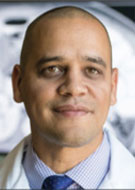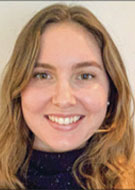Working With Patients Can Help Develop More Effective Lung Cancer Screening Outreach
Questions and obstacles can prevent patients from seeking important health screenings


Patients from low socioeconomic status communities experience worse lung cancer outcomes, but community-based outreach encouraging lung cancer screening can help overcome those gaps and promote trust.
“There is an increasing need for intentional outreach to ensure that everyone who is eligible will benefit from this life saving opportunity,” said Efren Flores, MD, assistant professor of radiology at Harvard Medical School and radiologist at Massachusetts General Hospital, both in Boston.
To that end, Dr. Flores and colleauges worked with communities to develop three outreach videos that would promote lung cancer screening with messaging from either a radiologist, a patient or a patient and radiologist together. Focus groups including those who had gone through lung cancer screening, patients who had not undergone screening, community leaders, primary care physicians and patient advocates worked with the research team to review and revise the video scripts.
Among focus group participants, fear and transportation challenges were listed as common barriers to lung cancer screening. Other patients reported confusion about who is eligible, the lung cancer screening process and insurance coverage.
“We found that people want to get the message from someone they feel they can trust,” Dr. Flores said. “Being genuine and authentic is key. It’s one thing for the message about quitting smoking to come from the provider, but it means more to hear from someone who has gone through the process.”
The videos also emphasized that lung cancer can be treated more easily when it’s detected earlier.
“It is also a message of hope,” Dr. Flores said.
Videos Shared With Focus Groups
Once the videos were produced, a national sample of 315 lung cancer screening-eligible, current smokers with Medicaid were randomized to watch one of the three videos and report their satisfaction, intent to screen and attitudes about lung cancer, Dr. Flores said.
The study showed 67% overall satisfaction with the videos. Participants in the video where the message was delivered by a radiologist reported significantly greater perceptions of information quality, but participants in the video delivered by the patient reported the greatest intent to speak with their primary care physician about lung cancer screening.
“This project exemplified how radiologists can partner with key stakeholders to tailor outreach about lung cancer screening,” said Keenae Tiersma, clinical research coordinator at Massachusetts General Hospital. “I particularly enjoyed the mixed methods approach to this project as we had the opportunity to gain in-depth information from individuals and also see how our outreach was received on a larger scale.”
“Our methods can be adapted to different populations and settings, which opens exciting opportunities to continue working to promote screening equity among underserved communities,” Tiersma said. “As someone just beginning in the medical field, I look forward to building on this work to advance health equity in radiology.”
Dr. Flores grew up in Puerto Rico and said he watched a relative die from lung cancer who was not able to access adequate healthcare, which has inspired his work to ensure all patients receive the best care possible.
“There is not a one size fits all approach. If we partner with our patients and other members of the community, we can transform healthcare delivery, raise awareness, and achieve meaningful change in disparities in health equity,” he said. “Health equity is everyone’s responsibility.”
For More Information
Access the presentation, “Bridging The Digital Divide: A Mixed-methods Research Approach To Develop A Community-based Lung Cancer Screening Digital Outreach Video Tailored For Communities from Low Socioeconomic Status Backgrounds,” (NPM03-B2) on demand at Meeting.RSNA.org.
Read previous RSNA News articles on lung cancer screening: